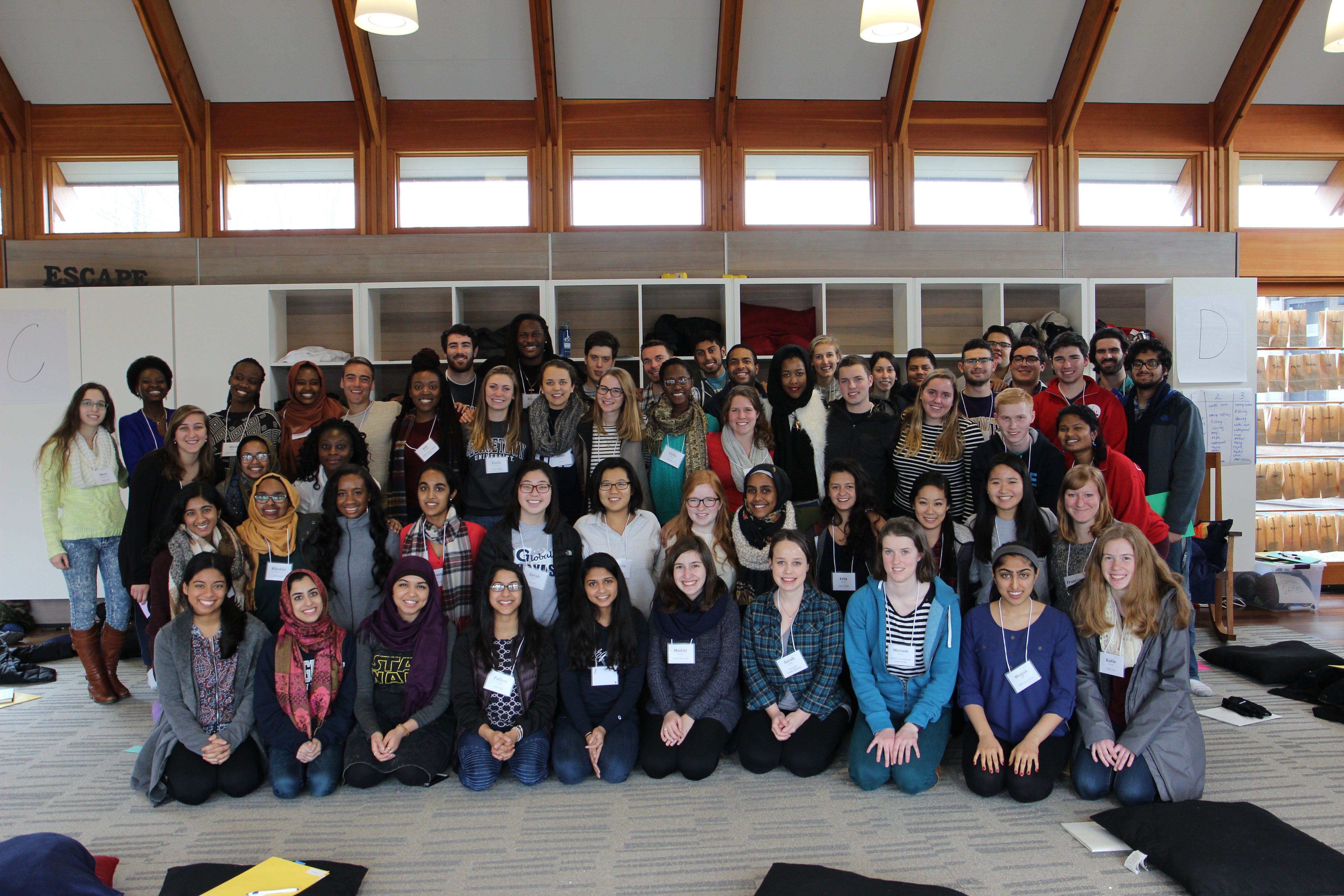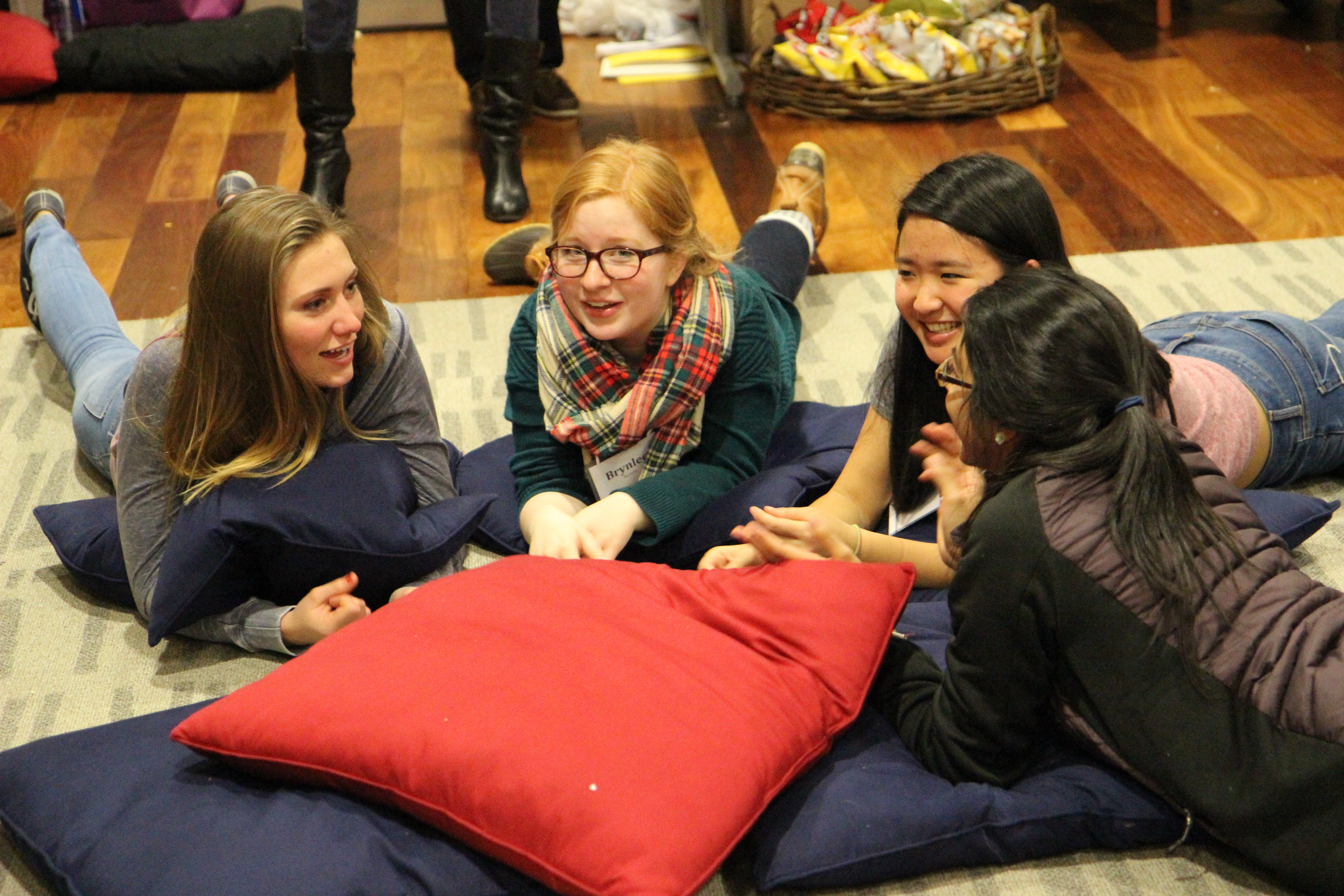The Power of Reflective Conversation
 Is it possible to have experiences at Georgetown but miss the meaning of them? This question, raised from a powerful talk by Rev. Kevin O’Brien S.J. at the Campus Ministry Leadership Retreat, both intimidated and intrigued me at the same time. Georgetown, after all, was full of new experiences for me. This was the first and longest time I had lived away from my family—1,601.5 miles to be exact. It was also the first time I had the chance to attend Shabbat, Sunday Mass and other religious services different from my faith tradition. Over my first year and a half at Georgetown, there were countless experiences I could recall, but whether or not I had truly captured the meaning of them caused me to think deeper about if I was truthfully making the most out of my time at Georgetown.
Is it possible to have experiences at Georgetown but miss the meaning of them? This question, raised from a powerful talk by Rev. Kevin O’Brien S.J. at the Campus Ministry Leadership Retreat, both intimidated and intrigued me at the same time. Georgetown, after all, was full of new experiences for me. This was the first and longest time I had lived away from my family—1,601.5 miles to be exact. It was also the first time I had the chance to attend Shabbat, Sunday Mass and other religious services different from my faith tradition. Over my first year and a half at Georgetown, there were countless experiences I could recall, but whether or not I had truly captured the meaning of them caused me to think deeper about if I was truthfully making the most out of my time at Georgetown.
At the beginning of the retreat, we were introduced to the mission statement of Campus Ministry, which focused on three core values: meaning, belonging and purpose. One of the roles of Campus Ministry was to help us discern our causes. Another role of Campus Ministry was to help us reconnect to different layers of significance and importance. Finally, Campus Ministry’s role was to help us piece together our experiences and make meaning out of them. After we listed our goals, made acquaintances with each other and went through a round of thrilling icebreakers, we moved to the core of the retreat, which focused upon helping us find this meaning that would be so crucial to our experiences at Georgetown.
The solution to finding meaning, I would soon find out, rests in the practice of reflective conversation. During my first few weeks at Georgetown, I remember hearing the word reflection thrown around multiple times, but I hadn’t really learned how or when to do it. We started out by listing challenges we had faced at Georgetown, and I was surprised to discover how many others had the same problems I had encountered, such as coming to terms with vulnerability and consolidating differences in agenda. After becoming comfortable with the fact that I wasn’t really sure how to engage in reflective conversation, I was eager to learn more about it and take the most benefits from it.
The key to reflection lies in four different steps. The first is building rapport; before reflecting, it’s necessary to know who we are reflecting with and build a relationship with them. The second is figuring out what’s important; aiming for the importance of a specific experience gives direction. The third is interpretation; it’s essential to ask why a certain experience is important. The final and most powerful part is concluding the conversation; reflective conversation ends with affirming the value of people telling their stories. As I learned during the retreat, everyone has their own distinct and noteworthy story, and after learning the power of reflective conversation, I’m more equipped than ever to explain the significance and power of mine.
Written by Nena Beecham, F’18
